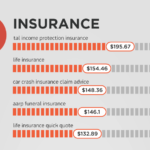A 10-year veteran at DBS Bank, Karoonyavanich recently expanded his role to cover all Equity Capital Markets business for the bank globally when the firm merged its equities, fixed income and brokerage businesses to form a new Investment Banking unit.
The Investment Banking unit, which sits within DBS’ newly formed Global Financial Markets group, has already marked a stellar year, further solidifying the bank’s capital markets presence in key regions like Singapore, mainland China, Hong Kong, Indonesia and Thailand.
Despite a challenging period for the markets in the past two years, DBS witnessed a remarkable rise in its equities capital markets franchise. Its Hong Kong market share surged from a mere 0.2% in 2021 to an impressive 6.7% in 2023; Indonesia’s share jumped from 2% to 8.8% in the same period. Notably, DBS was instrumental in Indonesia’s two largest IPOs last year, Amman Mineral and Trimegah Bangun Persada—both pivotal to the electric vehicle battery sector.
So far this year, DBS was the joint bookrunner for two of the largest ECM deals in Singapore: the follow-on placements of Frasers Centrepoint Trust (US$200 million) and Digital Core REIT (US$120 million). Both placements were meaningfully oversubscribed and remain the only ECM deals in Singapore year-to-date to have raised over $100 million.
Read on as we delve into Karoonyavanich’s insights on navigating the dynamic capital markets, DBS’ strategic initiatives and the outlook for key financial markets in Asia.
Global Finance: You’ve been with DBS for almost 10 years, what were the standout moments, successes or trends that you noticed throughout that time?
Art Karoonyavanich: Over the past two decades, Singapore has done a tremendous job in building the REIT market and ecosystem to become the largest REIT market in Asia ex-Japan. DBS was the pioneer in the early 2000s. By the time I joined the firm in 2015 and onwards, we saw a pickup of issuers from elsewhere across the globe looking to access the REIT market in Singapore. We had a diverse group of sponsors — with assets from the US, Europe, China and Japan, across segments such as data centers, logistics, offices and retail — calling the Singapore Exchange home.
GF: Did the recent real estate downturn in China affect DBS’ business in Singapore?
Art: Singapore wasn’t so affected because the exposure to real estate in China was minimal. REITs in Singapore are much more diversified and are backed by high-quality sponsors. While there was some exposure in China real estate for the REITs here, much of the downside was contained. In fact, certain REITs have gone on to do extremely well, including the ones in the logistics space or data centers that may not have much exposure to China. Hopefully, in China, the policies that they are rolling out will quickly revive the sector.
GF: Which areas of focus has DBS grown?
Art: Besides bringing REITs and business trusts to Singapore, we also spent time building our regional equities footprint. One market where I was hired into was Hong Kong, where a lot of Chinese companies were listing. We’ve been involved in many landmark transactions over the years, offering our entire product suite to clients and guiding issuers. In 2017 and 2018, we saw China continue to open up. As a bank, getting our foothold in onshore investment banking, equities and debt became more important. By 2019, we started to prepare ourselves to get a securities license on-shore in China and quickly build a team on the ground in Shanghai. DBS Securities China was officially launched in mid-2021.
GF: Was the timing of that initiative challenging?
Art: It was right in the middle of the Covid-19 pandemic. The transactions that we were working on to list in Hong Kong for Chinese issuers required us to be present onshore, hence making that investment and being on the ground with our clients in China helped a lot. With our bankers on the ground with the ability to do onshore and offshore deals, this allowed us to be much more flexible. From 2021 onwards, we were able to have more feet on the ground, reach more clients and provide them with solutions and support. That positioned us to help them raise capital.
Southeast Asia has grown in importance over the last several years. In Indonesia, for example, we’ve been able to double down on another core market for DBS and build a large capital markets presence there.
GF: Global IPO and M&A activity have been dismal. How have higher interest rates affected ECM activity in Asia?
Art: ECM volume in Hong Kong for 2021 was north of US$100 billion. Fast-forward to today, ECM volume in Hong Kong for the first quarter was just over $1 billion—a huge drop-off. You can attribute the slowdown, in terms of issuances across Asia, to a lot of factors. One big factor is a lack of risk appetite from investors. Another big issue is interest rates. When interest rates are lower, investors deploy capital or liquidity into riskier assets. 2021 was a good year; while 2022 and 2023 were slow, with a bit of a carry through from that in 2024. That said, in the last few weeks there has been a pickup of investors coming back to buy Hong Kong listed stocks. The Hang Seng surpassed the 18,000 points mark, extending gains. So, there’s a bit of momentum coming back into the overall market.
We’ll start to see some more capital or equity fundraising from REITs in Singapore later this year, which will help bring new equity capital back into the market. A couple of transactions were done earlier this year, including two REITs that raised acquisition-related capital in a secondary fundraise. In the near term, with rates having more or less stabilized, issuers are starting to position themselves again to raise capital.
GF: Where else has there been a pickup in activity?
Art: Over the last 18 months or so, there’s been a big push in terms of capital being deployed in India. It’s catching the wave. As indices continue to do well, and new issuers come to market, a lot of money is flowing into that market.
GF: Were you inspired by the recent election results? (In April, Prabowo Subianto was formally confirmed as Indonesia’s president-elect; he will take office in October.)
Art: With the elections completed, we expect a pipeline of issuances to come back to the market by the end of this year or early next year. We see the progression of the capital markets build out in Indonesia to continue going forward.
GF: What about Thailand?
Art: In Thailand — being the most liquid equity market in Southeast Asia — we anticipate that the issuance market will rebound now that the country’s elections have concluded. For those two big markets — Indonesia and Thailand — deals will ultimately come back.
GF: How is DBS positioning itself for future growth and to help clients capture more opportunities?
Art: As risk appetite returns, corporates from other parts of the region, including China, will look to diversify and expand into Southeast Asia. Singapore is a natural landing point and because DBS is entrenched in Singapore, it’s a natural conversation that we have with a lot of our clients. We will continue to look at how we can help companies raise capital here. I think that that trend will continue.
Institutional demand for well-sponsored REITs with strong fundamentals will return. This demand will help support REIT equity fund raising plans to opportunistically fund acquisitions of good quality assets, which there are opportunities for now.
Eventually, we’ll also see follow-on issuances and quality IPOs return in Hong Kong, and a growing interest for secondary listings in Singapore from businesses seeking to expand their operations in Southeast Asia.
Among equity market league tables, we continue to be the top bank in Singapore. Last year, we were ranked fifth in Hong Kong and we’re number two in Indonesia. We will continue to be consistent in those key markets and help clients there because there’s a large number of them that will need equity capital as the market recovers in the next 12 to 24 months.





